Beacons of Badassery is an interview series shining light on strong women.
After spending most of my life trying to prove that I’m strong enough to be one of the guys, I’ve realized that instead of trying so hard to fit a certain expectation, we should be redefining what it actually means to be strong.
These women are doing just that.
Beacon of Badassery: Cyrena Lee
I connected with Cyrena Lee as Brooklyn Boulders Somerville became my second home and the center of my community. She was working on all things content and creative at BKB headquarters, and her writing about climbing and interviews with climbers was a huge inspiration to me as a newbie.
Cyrena is now leading content creation for the newly launched Virgin Sport, and I reached out to her because I was very curious to hear how climbing has helped her handle the challenges of life, as well as her thoughts on being a woman in the world of outdoor sports.
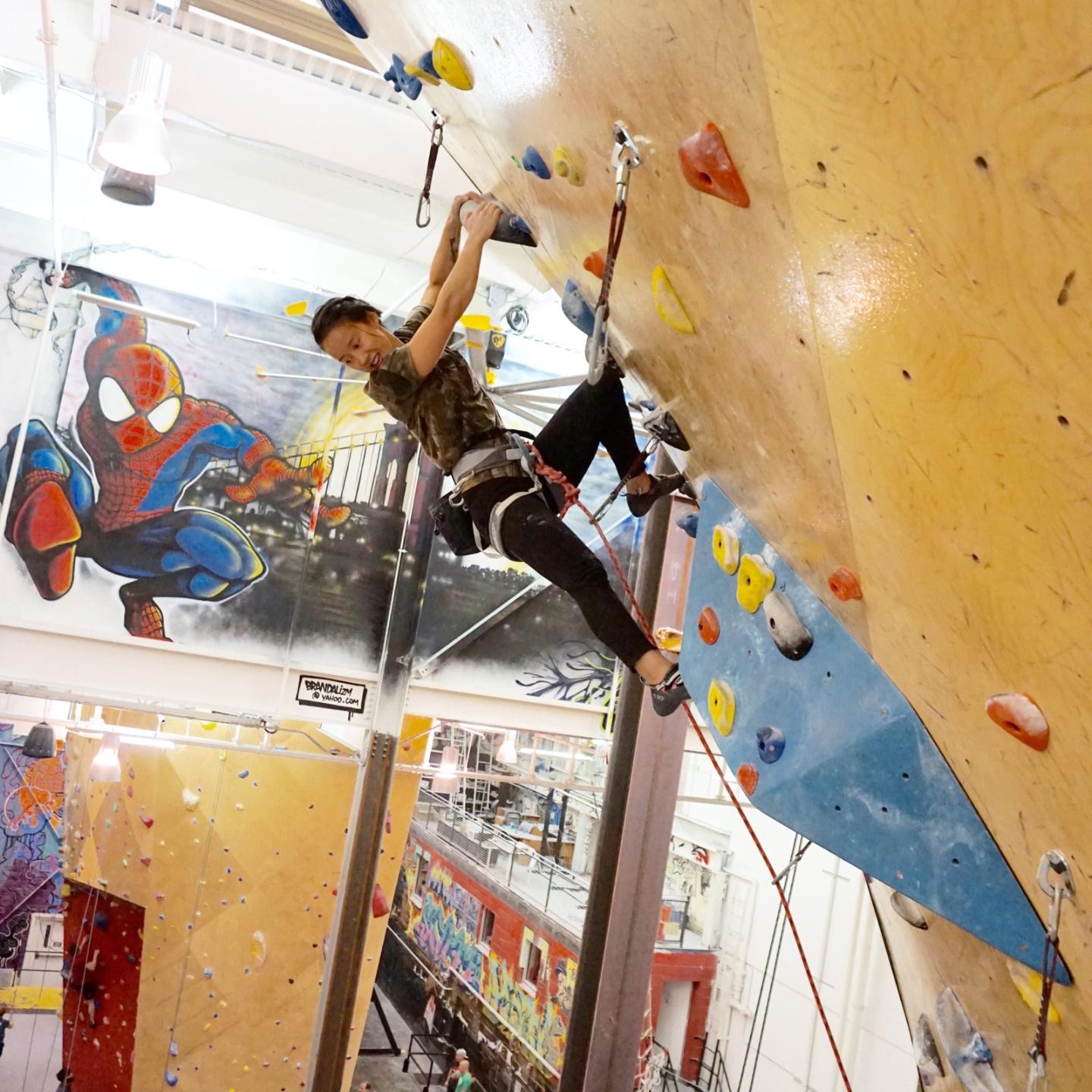
How did you get into climbing? Which came first for you, working for Brooklyn Boulders or climbing?
I stumbled into climbing on a whim – I actually went on a Groupon with a bunch of friends. We checked out Brooklyn Boulders and while my friends were all instantly addicted, I was a little less convinced. It was hard and I wasn’t great, and having trained as a gymnast, I had higher expectations for myself. Begrudgingly, I went back a few times and then happened to see that they were hiring for a content person. After browsing through their website and realizing that there was an entire community with countless inspiring stories to be told, I then decided to apply for the job. Fast forward a few weeks and climbing became the center of my life – I worked inside a climbing gym, and it’s easy to get psyched when everyone around you is.
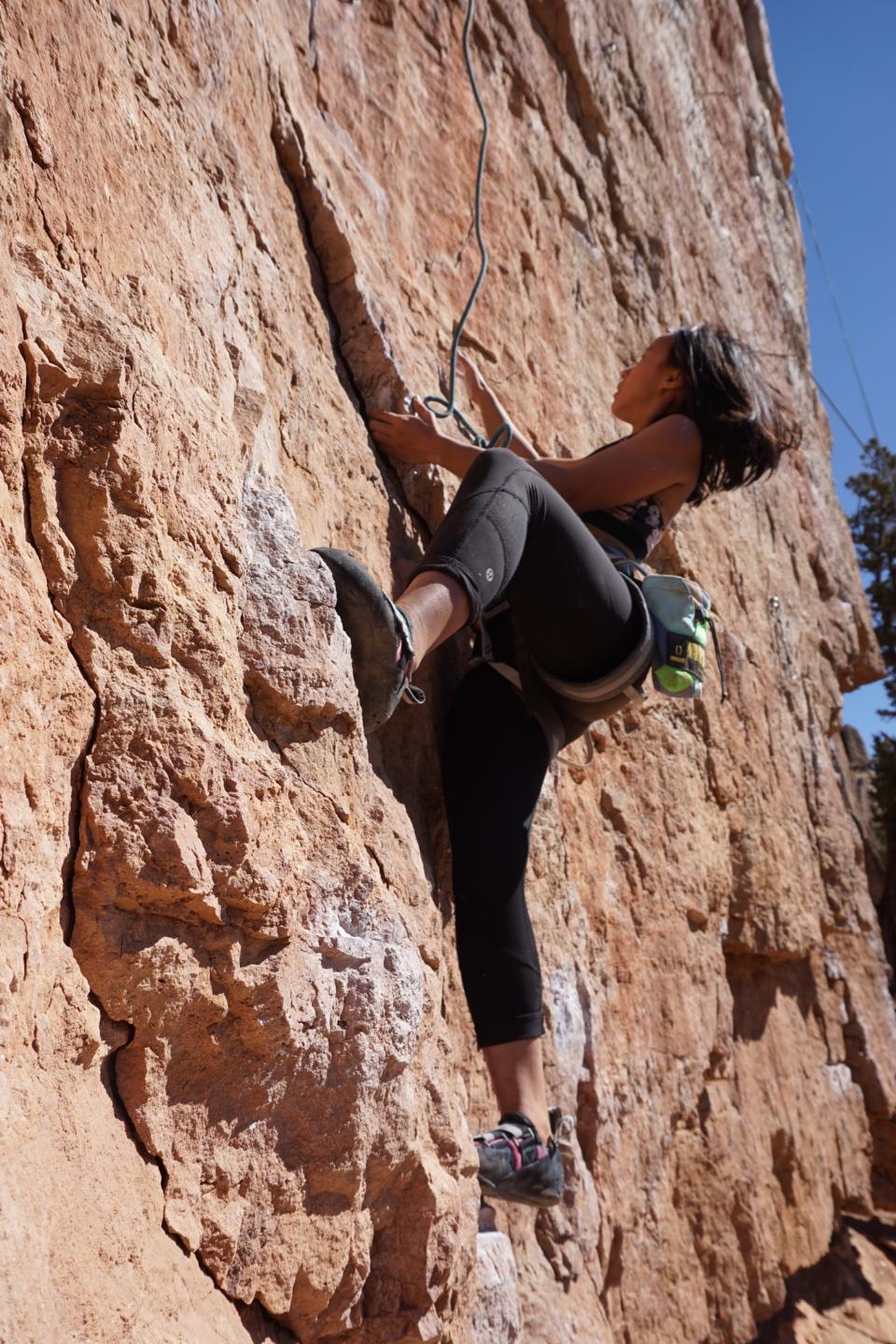
In an article for The Climbing Zine, you wrote “…My existence is explained by how I climb. When I get frustrated on the wall, when I can’t do a problem outside, I examine every inch of my mental journey and extrapolate – what’s holding me back in climbing is very likely similar to what’s holding me back in real life.”
I definitely have experienced these mental battles myself. For me, trusting myself and believing in my ability are obstacles that keep coming up. Do you have any personal patterns that you notice? And what is your process to work through them?
Climbing is probably 90% mental. It’s not just about how strong your physical body is, it’s about how strong you are as a person. Having a meditation practice has definitely helped me be in the moment and to be unafraid to go hard on moves because I’m not thinking about what might happen in the future. I think my personal obstacles are that I tend to rely on what’s easy or what works – even if it’s not the most efficient path. For example, I have terrible technique – I muscle through a lot of moves and do things dynamically unnecessarily or without thinking it through. And if it works, I’ll just leave it. I think I probably have similar habits in life, working quickly and not taking enough time to pause and re-examine how I am working, especially if it’s working out. I think I could always improve.
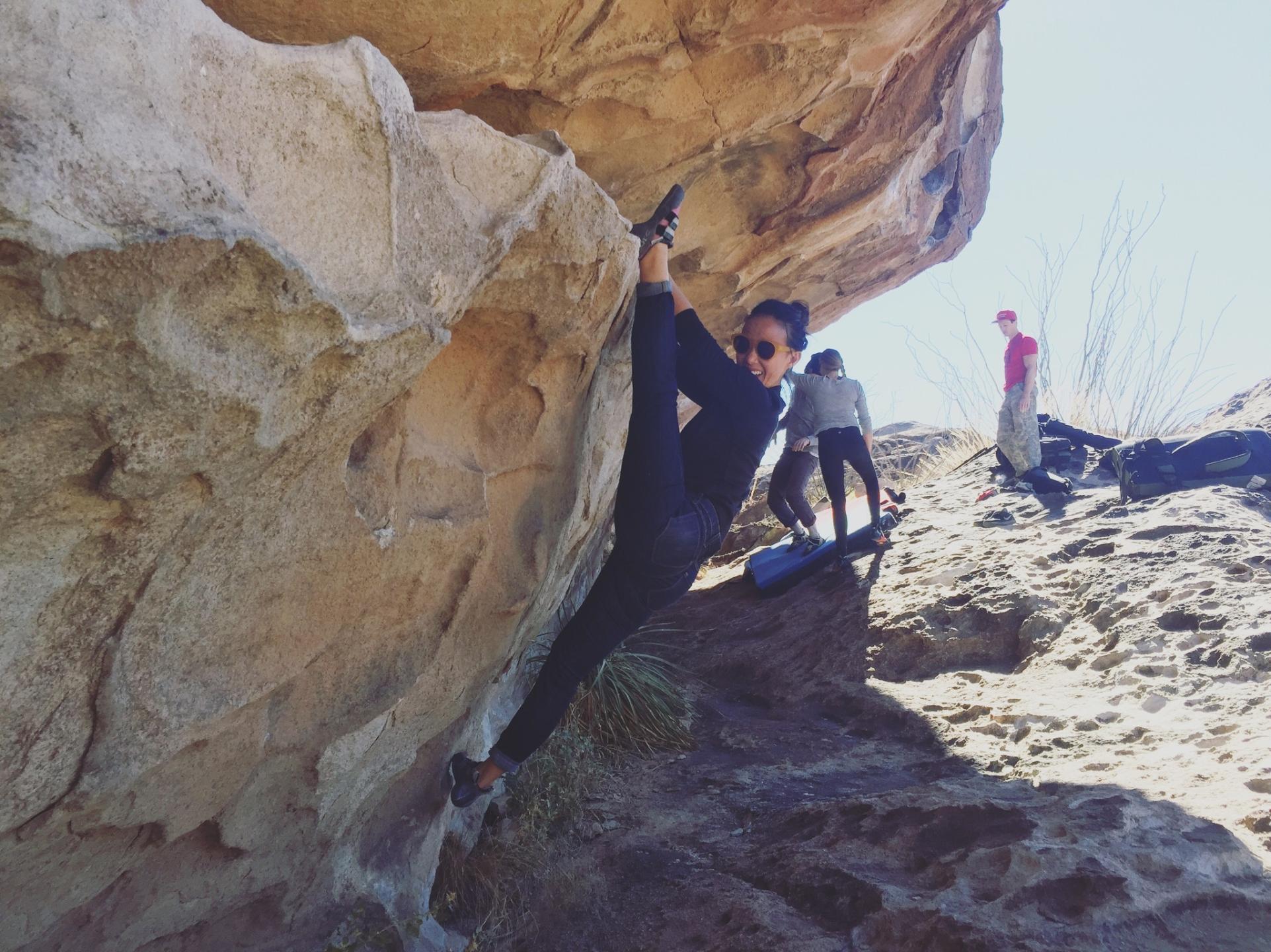
What is your definition of strong? How has it changed since you became a climber?
I’ve been lucky to have always been around really strong women (and men) having done competitive gymnastics – and many of them were superhuman freaks! I think climbers are really strong in an entirely different way – I’m most impressed when I see climbers outside. Like the idea of Nina Williams sending Ambrosia is unreal to me. You have to be so mentally strong to pull something like that off, on top of being incredibly physically strong. It’s wild.
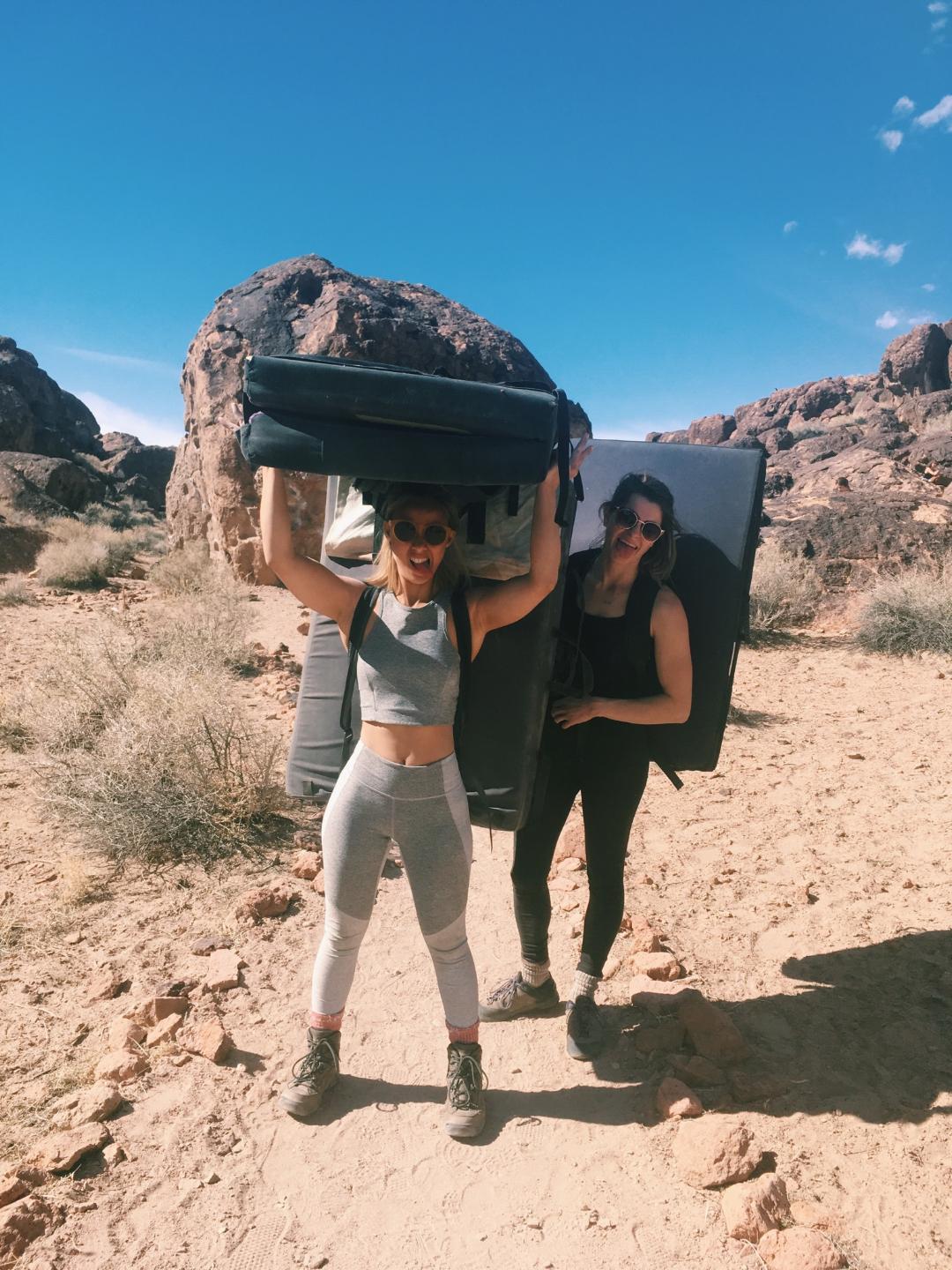
Women’s outdoor communities and events, like Flash Foxy and the Women’s Climbing Festival and REI’s Force of Nature, women’s hiking groups, and women’s groups at climbing gyms (I’m currently helping lead one at BKB Somerville) are becoming hugely popular. Why do you think it is so important for women adventurers to connect with other women? Do you think that these communities will help change the overall landscape of climbing and the outdoors from one that is dominated by men? What more can we do to encourage women in the outdoors and other traditionally male-dominated pursuits?
I think there needs to be more diversity in leadership positions in general in the world – female focused communities and events are just the tip of the iceberg, and it’s a great place to start as 50% of the world is female.
But it’s also important for women to recognize intersectionality and how different barriers can be amongst women, depending on your specific background. People have an innate need to feel a sense belonging with others, and it’s difficult to find that sense if the world doesn’t feel like it was made for you to belong in it. Like you don’t have a voice or face.
I think it’s important for women to connect with other women in general because, oftentimes, women are pitted against each other, seen as competitors for resources or as if there are limited spots for the ‘token female’. The tradition of sisterhood has given way to nuclear family structures where women are focused on their families, their careers, their kids, and more often than not, their friendships are neglected.
I’m actually doing a little workshop at this event called the Summit Sisters this summer (I wrote about it here), and it’s incredible how empowering simply feeling comfortable being yourself can be. I think that is difficult for a woman in this day and age, with so much scrutiny over our physical appearances and expectations set in the media for how we should look. With more and more media and campaigns that focus more on what women accomplish and on how strong they are rather than how they look, I think it’s a step in the right direction.
In terms of encouraging women to be in the outdoors, I think everyone should be encouraged to be in the outdoors – it really changes your brain and is good for you and would probably change our society for the better. In terms of encouraging women to pursue traditionally male-dominated activities, I think, great – let’s encourage women to do whatever they want. But I am wary of creating this idea that women can simply act like men to achieve what they have – to be a macho, narcissistic, CEO type. I think it’s most important to encourage all people to pursue whatever path they want, however they want.
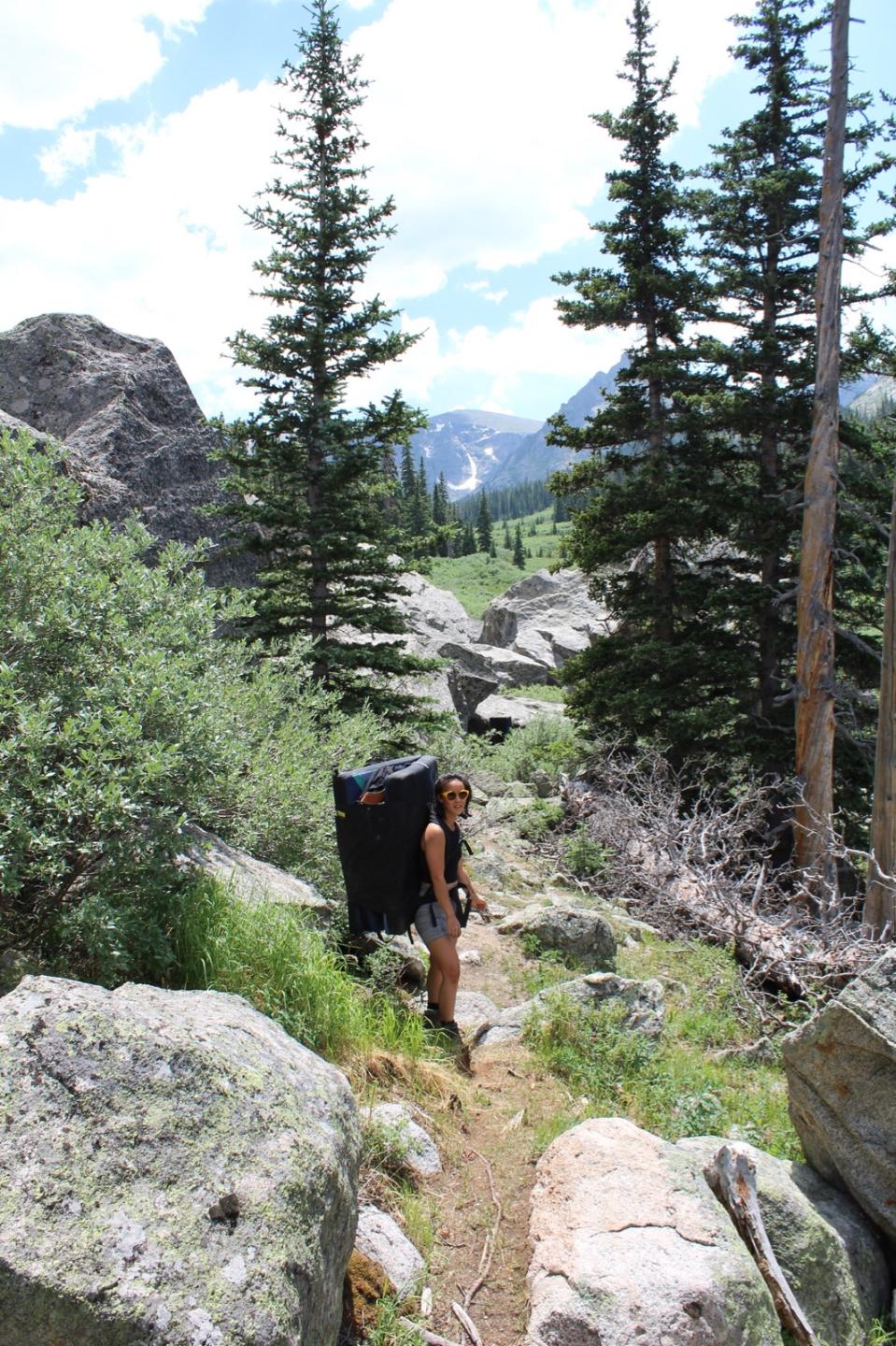
You’ve chosen a lot of different paths in life, and I relate to that very much. In the post “Moving Is the Ultimate Form of Travel” for Fathom, you say “To move implies that you aren’t coming back and are unlocking a whole new side of yourself.”
How do you know when it’s time to move on to a new adventure and discover a new version of you?
As soon as you are comfortable, start questioning how you are growing and how you are being challenged. A lot of people hate being uncomfortable, so much that they’ll do anything to avoid it. Your comfort zone is where nothing gets done and where you don’t really change, which isn’t to say that being comfortable isn’t great – but it’s much better after you’ve put yourself through something, like a warm shower and bed after a week of camping.
Or if you realize that you’ve been complaining about the same thing for days, weeks, months on end… it’s time to stop and to make that uncomfortable choice to get up and do something about it.
Thanks, Cyrena, for your thoughtful answers to these questions, and for all you do to inspire and create!
Explore more of Cyrena’s work at cyrena-lee.com.